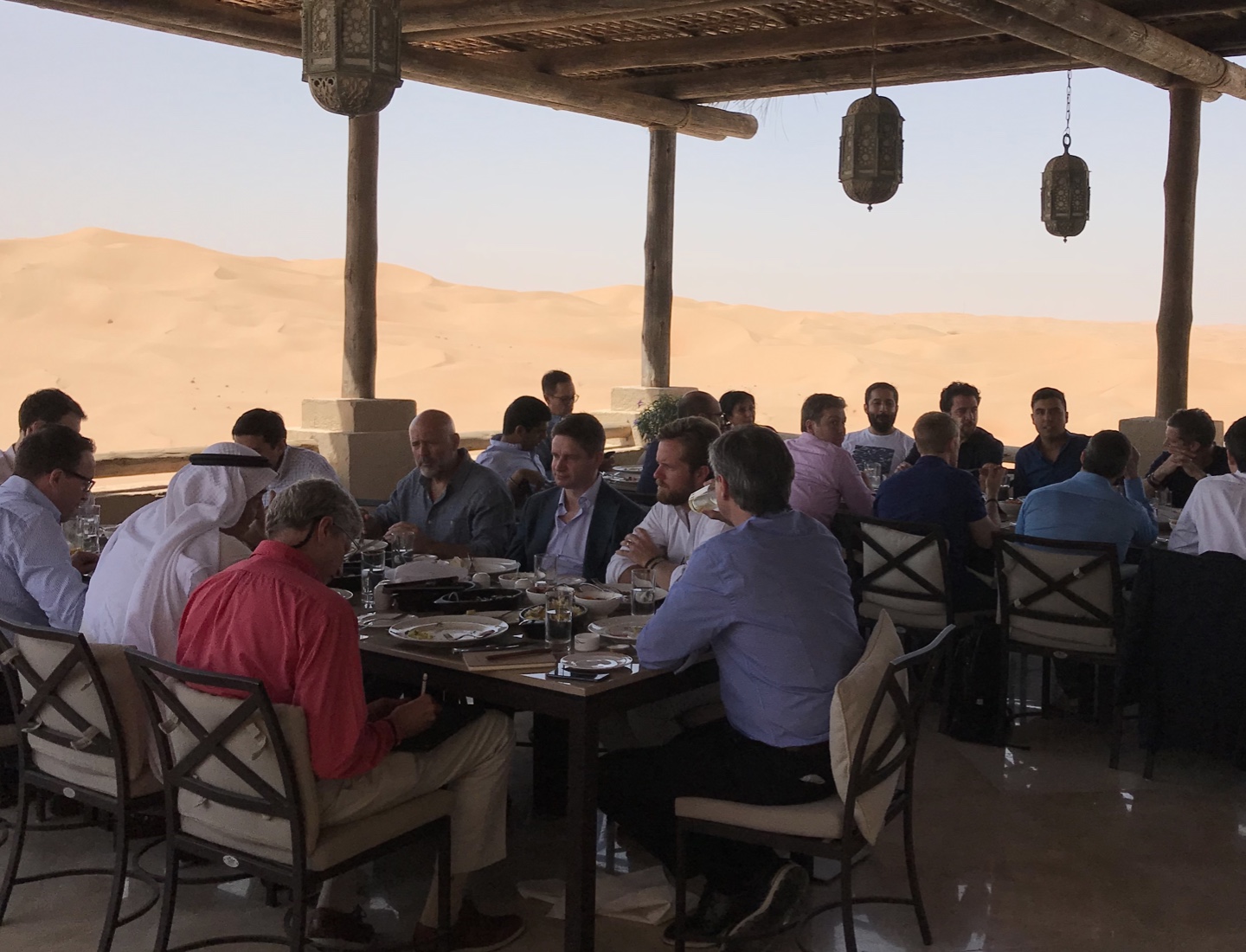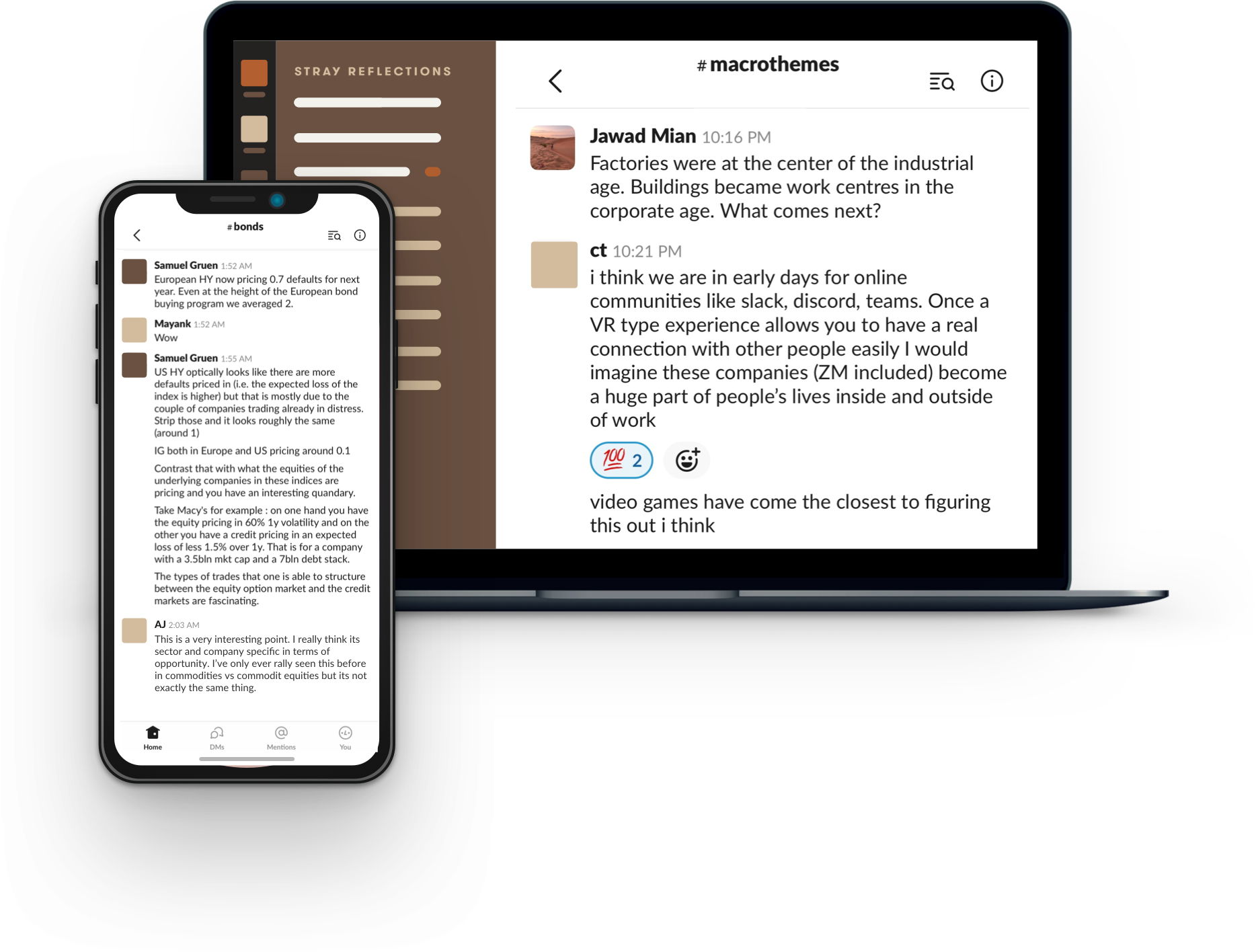You know, I guess you could say that my mom and me, we didn’t get along so good. I guess I was six when she looked at me and she said, “Why don’t you just kill yourself? You’re such a burden to me.”
Those were the opening lines of the final speaker at the macro conference this year, Fabian Debora, a man of medium built, with black-gelled hair pulled into a sleek ponytail, a neatly trimmed black mustache, hollowed earrings in both ears, and eyes that retain a hint of mystery. Born in America to Mexican parents, Fabian shared his moving story of growing up in Aliso Village, one of two Boyle Heights public housing projects built in the 1940s, which at one time was plagued by the city of Los Angeles’s highest gang-related murder rate.
Raised by a single mother and an often absent and abusive, heroin-addicted father, he was expelled from school in eighth grade and spent his days rambling along the streets of East L.A. There were eight local gangs in the neighborhood so eventually after being pressured he joined one. He was 13. He got caught with guns, did numerous stints behind prison bars, and wrestled for years with drug addiction. He felt his life spiraling down to its inevitable ending. “I was starting to act like my father, but I didn’t want to be like him,” he recalled.
Then one fateful afternoon, at age 30, when Fabian retreated to his mother’s attic to smoke meth, she unexpectedly came home. Suddenly he freaked out and sought to escape.
Fabian had our full attention. He continued his story in beautiful spoken word poetry…
Mom called me every name in the book. I ran out of the house. I’m thinking, I’m guilty. I’m shameful. I’m a worthless piece of shit. And I hear voices: “You don't deserve to live.” “No piensas eso!” “No, kill yourself!” The voices were faint at first, but then grew louder and louder, “Kill yourself!” I ran across the freeway with the hopes that a truck would kill me and take me out of my misery. First lane, second lane, third lane, going for the center divider. I saw a turquoise Chevy Suburban coming at me and it felt like my soul is ready to leave my body. And at that moment I yelled, “My kids!!”
I looked straight up when I said that and this powerful gust of wind came, and it felt like something greater and higher than myself pushed me—BOOM—and I hit my chest so hard against the center divider. I suddenly recognized the truck did not hit me, it took off. I looked up and saw these beautiful sunrays dancing, as if the sky was opening. I experienced the feelings of peace, joy, happiness, and serenity—feelings that could only come from a Higher Being. There was a spiritual energy and I realized that God loved me.
By that point the Highway Patrol had arrived on the scene. I ran away from them. I got to the projects and called my mom and said, “Mom, I almost got killed today.” “Where you at?” “I’m in the projects.” “I’m on my way, mijo. Don’t move. Don’t leave.” She was like Mary picking her son off the cross. That’s how I felt.
Fabian entered rehab and embarked on an artistic career. Drawing was the only thing he had latched on to since his childhood. He also remembered Gregory Boyle, a Jesuit priest at his childhood Catholic parish Dolores Mission, who told him all these motivational things when he was ten years old. So Fabian went looking for him.
After witnessing the devastating impact of gang violence on his community during what he called “the decade of death” that began in Los Angeles in late 1980’s, Fr. Greg founded Homeboy Industries to address the escalating problems and unmet needs of gang-involved youth. The idea was to create a positive alternative environment that provides hope, training, and support allowing them to redirect their lives and become contributing members of society.
Homeboy Industries offers a range of free services and programs, including tattoo removal, anger management, parenting classes, GED education, and workforce development. Through its social enterprises that serve as job training sites (Homeboy Bakery, Homeboy Silk Screen, Homegirl Café), it also provides work experience, and above all, the opportunity for rival gang members to overcome differences and work side by side.
Fr. Greg understands the language that gang violence is speaking and wants to counter it by reminding us that hope is a beautiful thing and no life is less valuable than another.
The truth about gangs is it’s all about a lethal absence of hope. It’s about kids who can’t imagine a future for themselves. It’s about kids who’ve ceased to care. It’s about the fact that they’re always fleeing something, always, without exception. So you want to infuse young people with hope when it seems that hope is foreign.
Homeboy Industries is the largest and most successful gang intervention, rehabilitation and re-entry program in the world today, providing critical services to 15,000 people who walk through its doors every year seeking a better life. Formerly gang-involved youth and incarcerated men and women are welcomed into a community of kinship, love, and tenderness. Those at Homeboy stand against forgetting that we belong to each other.
The counselors help people heal, learn some resilience, and redefine who they are in the world, which is an incredible task. The recovery process has its foundation in uncensored honesty and a devotion to new actions that set straight the wrongs committed in the past. Life thus takes a new meaning.
“I carry many feathers,” Fabian explains, who is now a substance abuse counselor at Homeboy as well as a respected artist. “A gang member, a drug addict, a felon, but I have redeemed myself through the power of art. It has given me my self-worth. And I feel it is my responsibility to use my art as a vehicle in helping kids and even adults to heal and recognize value in themselves and their surroundings… I want to return the whole image of the homie to humanity.”
Fabian’s hard-won state of grace has ended the vicious cycle of inter-generational substance abuse and repaired his relationship with his mother, who is one of his most loyal supporters. And in raising his five children, he stresses the importance of showering them with love and compassion.
After the content sessions wrapped up, the conference invited guests to tour the bustling headquarters and facilities of Homeboy Industries. I know I benefited tremendously from the experience. Homeboy showed me what it takes to heal this world. The answer is really kinship.
As Fr. Greg, called G-dog by his homies, says, “God created, if you will, an otherness so that we would dedicate our lives to a union with each other.”

Photo: Unsplash






